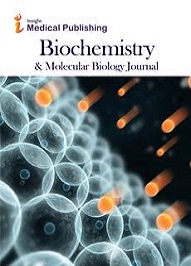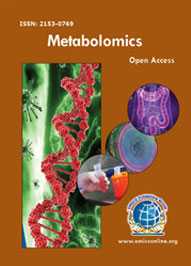Theme: Exploring the Latest research in Metabolomics and Proteomics
Metabolomics 2021
- About Conference
- Session and Tracks
- Market Analysis
- Target Audience
- Scope and Importance:
- Why Attend Metabolomics-Meta-2020?
Conference Series LLC LTD invites all the participants from all over the world to attend 18th International Conference on Metabolomics and Proteomics during December 01-02, 2021 Frankfurt, Germany, Which includes prompt keynote presentations, Oral talks, Poster presentations, and Exhibitions.
Metabolomics 2021 is the premier event that brings together a unique and international mix of experts, researchers and decision makers both from academia and industry across the globe to exchange their knowledge, expertise and research innovations to build a world-class plant genomics conference.
It’s our greatest pleasure to welcome you to the official website of ‘18th International Conference on Metabolomics and Proteomics that aims at bringing together the Professors, Researchers, scientists, Program developers to provide an international forum for the dissemination of original research results, new ideas, and practical development experiences which concentrate on both theory and practices. The conference will be held on December 01-02, 2021 Frankfurt, Germany. The theme of the conference is around, “Accelerating Innovations & Fostering Advances in Metabolomics and Proteomics”. Featuring 2 days of the scientific workshop, special sessions, speaker & poster session, Industrial Expo. 300+ attendees from all over the world. The event focuses on aspects such System Biology, Clinical Metabolomics & Cancer Genomics, Metabolic Engineering and Epigenetics, Plant Nutritional Genomics and Horticulture, Plant Science and Agricultural Sciences, Genome Sequencing and Plant Molecular Breeding, Plant Proteomics as well understanding tools to overcome the barrier and enable successful data analysis and management. Presentations concentrate not only particular to plant genomics but also crop and forestry research ranging from wheat, barley, maize and rice to potato, tomato, Arabidopsis, biofuels and various fruits. Conference Series LLC LTD organizes a conference series of 1000+ Global Events inclusive of 300+ Conferences, 500+ Upcoming and Previous Symposiums and Workshops in USA, Europe & Asia with support from 1000 more scientific societies and publishes 700+ Open access journals which contain over 30000 eminent personalities, reputed scientists as editorial board members.
TRACK 1: Metabolomics
Metabolomics is the study of the metabolome/metabolites, the unique biochemical fingerprint of all cellular processes. It is an Omics technology that allows simultaneous, global, and comprehensive characterization of small molecules in a biological system. It is the large-scale study of small molecules within a mass range of 50 – 1500 Daltons (Da), commonly known as metabolites, within cells, bio fluids, tissues or organisms. These metabolites within biological samples under given genetic, nutritional or environmental conditions are known as metabolome.
TRACK 2: System metabolomics
Systems biology is the study of biological systems at a cellular, molecular and organism level, as an integrated and interacting network of genes, proteins and biochemical reactions which give rise to life. It can be used to systematically at all levels, from molecules to entire systems and its integration into quantitative models to gain knowledge in order to make accurate simulation of biological processes possible. The technologies such as genomics, bioinformatics, proteomics, mathematical and computational models are used for predicting dynamical behaviour and quantitative measurements of the behaviour.
TRACK 3: Metabolomics in Systems Biology
Metabolomics along with the system biology can be used to identify endogenous metabolites that will modify the protein expression. The main aim of Omics technologies is to reveal unexpected properties of biological systems by their nature. On behalf of metabolomics, liquid and gas chromatography coupled to mass spectrometry are well satisfactory for coping with high sample numbers in reliable measurement times with respect to both technical accuracy and quantitation of small weight metabolites. This prospective is a prerequisite for the analysis of dynamic systems. So, metabolomics is a key for systems biology.
TRACK 4: Metabolic Modelling and Synthetic Biology
Synthetic biology main purpose is to create novel biological functions and systems by combining biology with engineering stream. The workflow of the development of novel biological functions with synthetic biology is ideally linear which will be attainable with the quantitative engineering approach, high-quality predictive models, and libraries of well-characterized parts. In particular phases of synthetic biology workflow differing types of metabolic models, mathematical representations of metabolism and its components, enzymes and metabolites, are useful.
TRACK 5: Computational Methodologies
Computational Biology may be a rapidly emerging field, at the interface of physics, arithmetic, computing and biology to review, analyse and understand complex biological systems by taking corresponding integrated systems using computational methodologies. The recent advances in computational methodologies are high throughput techniques and computational power. Computational systems biology provides a point of merging for genomics, proteomics, metabolomics and computational modelling and plays a key role in the fast progression of the evolving field by the outstanding developments in biology and computer science.
TRACK 6: Plant and Environmental Metabolomics
Plant metabolomics may be a recent research field that has gained increasing interest within the past few years and is applied for sub atomic level of the entire metabolite and metabolome of plants under particular conditions. Metabolomics is applied for a better understanding the relation between genes and the biochemical composition of a plant tissue in response to its environment conditions and this information can be further used to assess gene function. The environmental metabolomics is use of metabolomics strategies to investigate the connections of life forms with their surroundings.
TRACK 7: Pharmaco-metabolomics
Pharmaco-metabolomics used to determine the metabolic biomarkers that could potentially predict different responses of clinical drugs by identifying differential metabolites at baseline and correlating their variations with the therapeutic outcomes. Presently, Pharmaco-metabolomics remains in its infancy because most pharmaco-metabolomics studies are merely focused on revealing the correlation between baseline metabotypes which are influenced by factors like-gut, ages, drug intake and diets microbiota with drug responses or disease susceptibility to review and decrease the metabolic bases.
TRACK 8: NMR-based Metabolomics
NMR-based metabolomics provides information regarding organ-specific toxicity, monitor the onset and progression of toxicological effects, and recognize biomarkers of toxicity. An upcoming challenge of metabolomics is to explain the cellular metabolome for purposes of understanding cellular functions. Such information is crucial if metabolomics is to supply a balancing dataset alongside genomics and proteomics are often wont to construct network models to explain cellular functions. NMR data are vastly reproducible and quantitative over a wide vigorous range and are unparalleled for determining structures of unknowns.
TRACK 9: Mass Spectroscopy (Ms) based Metabolomics
Diverse analytical techniques are needed to achieve higher coverage of metabolites present within a biological system, which consists of a mass of molecules, having a variety of physical and chemical properties and existing as a dynamic home in biological samples. The application of mass spectrometry has increased exponentially since the discovery and innovation of electrospray ionization and matrix-assisted laser desorption ionization techniques.
TRACK 10: Approaches in Metabolomics
Metabolomics Analytical approaches for can be categorized largely into two discrete groups targeted or untargeted. These approaches can further be segmented as metabolic profiling, using an untargeted approach or metabolite identification and quantitation using a targeted approach. A diverse terminology for the definition of metabolic approaches has been used by various metabolomics research areas.
TRACK 11: Approaches in Cancer Metabolomics
Cancer biomarkers have many potential applications in cancer diagnosis, including screening, diagnosis, risk assessment, prediction of response to treatment, and monitoring of progression of the disease. Metabolomics is growing within the field with particular attention to its application as a biomarker in cancer diagnosis. Biomarkers could incorporate a good scope of biochemical elements, for instance, differing types of lipids, enzymes, proteins, macromolecules, and tiny metabolites, sugars, cytogenetic parameters and cytokinetic etc.
TRACK 12: Metabolomics in various Diseases
Metabolomics is new omics platform that offers great potential for the diagnosis and prognosis of neurodegenerative diseases as an individual metabolome reflects alterations in genetic, transcript, and protein profiles and effects from the environment. Small numbers of metabolites have been used to diagnose complex metabolic diseases as well as monogenic disorders such as inborn errors of metabolism. Metabolic alterations in Cardiopulmonary Vascular Dysfunction are the leading purpose of death worldwide which is affecting the functions of the blood vessels and heart.
TRACK 13: Clinical Metabolomics
Clinical metabolomics is achieving appreciation as an essential tool in precision medicine. Significant progress in separation science, mass spectrometry, and nuclear magnetic resonance spectroscopy occurring within the past few years are responsible for strengthening the analytical basis for metabolite identification and measurements in clinical samples. Metabolomics plan in the modern clinical approaches will allow a generous of diseases mechanisms and pathophysiological conditions, as well as providing innovative tools for novel diagnostic and prognostic approaches. Decades of research have energetically recommended that metabolism is not a self-regulating network operating independently.
TRACK 14: Nutritional Metabolomics
Nutritional metabolomics is using chemical profiling of tiny molecules to support the assimilation of nutrition and diet in complex bio-systems research. Nutrigenomics is a branch of nutritional genomics which deals with the effects of foods and food constituents on gene expression. Foodomics derived from the digestion and biotransformation of foods and their constituents during which MS techniques are considered indispensable.
TRACK 15: Genomics
Genomics uses a combination of recombinant DNA, DNA sequencing methods, and bioinformatics, to assemble, and analyse the structure and function of genomes. Thus, proteins structure body structures, for instance, organs and tissues and additionally control concoction responses and convey motions between cells. Genomics likewise includes the sequencing and examination of genomes through employments of high throughput DNA sequencing and bioinformatics to gather and break down the capacity and structure of whole genomes.
TRACK 16: Cancer genomics
Cancer genomics is the study of the entirety of DNA sequence and gene expression differences between tumour cells and normal host cells. It aims to understand the genetic basis of tumour cells its proliferation and the evolution of the cancer genome under mutation and selection by immune system, the body environment and therapeutic interventions.
TRACK 17: Protein Expression and Analysis
Protein expression refers to the way in which proteins are synthesized, modified or changed and regulated in living beings or organisms. Recombinant protein expression refers to the construct of proteins which derived from recombinant DNA. In protein research, protein expression can apply to either the object of study or the laboratory techniques required to manufacture proteins. Protein analysis is the bioinformatics study of protein structure, it’s interaction and function using database searches, sequence comparisons, structural and functional predictions.
TRACK 18: Metabolomics in field of Paediatric Medicine
In paediatric medicine, the potential applications for metabolomics a highly informative technique which will even be used on non-invasively collected samples. NMR- based Metabolomics might functions a promising approach for the diagnosis and prediction of mortality in septic shock during a paediatric population which quantitative metabolomics methods can be applied in the clinical evaluations of paediatric septic shock.
TRACK 19: Metabolomics in Metabolic Engineering
Metabolic engineering is the need of genetic engineering to modify the metabolism of an organism which deals with measurement of metabolic fluxes and elucidation of their control as determinants of cell physiology and metabolic function. An innovative aspect of metabolic engineering is that it evacuate from the outdated reductionist paradigm of cellular metabolism, taking a holistic view. Metabolic engineering is acceptable as a framework for the analysis of genome wide differential organic phenomenon data, together with data on protein content and in-vivo metabolic fluxes. The main aim of metabolic engineering is to manipulate metabolite production.
TRACK 20: Lipidomics
Lipidomics is an increasing field with plentiful applications. ESI mass spectroscopy is used to investigate the different cell types. Identification of lipid composition and quantification of cellular lipids gives us details about the lipid related pathway which also helps in identification of metabolic pathways and the effected enzymes. The need for bioinformatics is to maintain and integrate the experimental data in various aspects, such as-database design, visual display, for lipid classification analysis, and ontologies and play diverse roles in human physiology.
Growth and challenges of Change in Metabolomics Sector Propelling Market on a High Growth Trajectory
The Global Metabolomics Market is predicted to succeed in USD 2,386.4 million by 2021 from USD 1,209.4 million in 2016, at a CAGR of 14.6% during the forecast period. Metabolomics may be a powerful and unique analytical approach for the systematic identification and quantification of small-molecule metabolites, metabolite target analysis, metabolic profiling, and metabolic fingerprinting in various biological systems and samples. This metabolomics technology market majorly comprises detection techniques such as mass spectrometry (MS) and nuclear magnetic resonance spectroscopy (NMR), and separation techniques such as gas chromatography. These techniques are utilized in metabolome studies, primarily in toxicology testing and developing personalized medicine.
Market Dynamics
Drivers
• Availability of government and private funding
• Increasing pharmaceutical and biotech R&D expenditure
• Technological advancements
• Growing demand for personalized medicine
• Increasing use of metabolomics in toxicology testing
Restraints
• Issues related to data examination and processing
• High cost of tools and instruments
Opportunities
• Biomarker development
• Rapid growth opportunities in emerging markets
Challenges
• Complexity and diversity of biological samples
• Dearth of skilled researchers
Key Market Trend
A hyphenated technology is a combination of two or more analytical tools. Hyphenated technologies reduce cost by requiring the installation one instrument. They also provide ease of operation and require lesser space as compared to the installation of two or more standalone devices. In addition, these technologies have broadened the applications of analytical techniques within the analysis of biomaterials, especially natural products.
Target Audience:
• Life Sciences Instrumentation and Reagent Companies
• Metabolomics Database and Software Providers
• Metabolomics Service Providers
• Research and Consulting Firms
• Academic Medical Centers/Government Research Organizations
• Clinical Research Institutes
• Instrument Manufacturers
• Consumable Manufacturers
• Third-party Instrumentation Suppliers
• Instrument Raw Material Suppliers
• Pharmaceutical, Biopharmaceutical, and Biotechnology Companies
• Food and Agricultural Industries
• Environment Protection and Forensic Institutes
• Clinicians, Researchers, Hospitals, and Pharmaceutical Research Laboratories
• Government Bodies/Municipal Corporations
• Contract Research Organizations (CROs)
• Business Research and Consulting Service Providers
• Diagnostic Companies and Biomarker Service Providers
Scientists and Researchers organizers
Directors of Biochemistry department
Hospitals and Healthcare professionals
Metabolomics Research and Development (R&D) Companies
Metabolomics Instrumentation Technology Product Manufacturers
Metabolomics Industry Consulting Firms
Pharmaceutical companies
Genetics Associations and Societies
Doctors
Academic researchers
Professors
Business delegates
Young Researchers
Advertising and Promotion Agency Executives
Medical & Pharmaceutical Companies
Biomedical Research organizations, societies and associations
Software developing companies
Data Management Companies
Metabolomics is the quantitative and qualitative study of small molecules. It is said to be an important technique in systems biology. The purposes of metabolomics is accurate detection of disease, such as inflammation, necrosis, estimation of toxicity in newly designed drugs, Alzheimer’s, drug testing and interpreting biochemical pathways. Greater than 95% of clinical diagnostic assays tests are for small molecules. From pre-existing metabolites, 50% of the drugs are derived from known small molecule drugs.
Honorable scientific talks by the global scientific community
Sterling workshop sessions
Poster - paper presentations and world-class exhibitions
Opportunities to gain a deeper understanding of the topic
Meet Academics and Industrial professionals to get inspired
Great credits for the work in progress
Valuable talks and symposiums from renowned speakers
Meaningful sessions and accomplishments
Exquisite Platform for showcasing your products and International Sponsorship
Awards and Global Recognition to meritorious Researchers
Global Networking opportunities with 50+ Countries
Conference Highlights
- Metabolomics
- Systems Biology
- Metabolomics in Systems Biology
- Metabolic Modelling and Synthetic Biology
- Computational Methodologies
- Plant and Environmental Metabolomics
- Pharmaco-metabolomics
- NMR-based Metabolomics
- Mass Spectroscopy (Ms) based Metabolomics
- Approaches in Metabolomics
- Approaches in Cancer Metabolomics
- Metabolomics in various Diseases
- Clinical Metabolomics
- Nutritional Metabolomics
- Genomics
- Cancer genomics
- Protein Expression and Analysis
- Metabolomics in field of Paediatric Medicine
- Metabolomics in Metabolic Engineering
- Lipidomics
To share your views and research, please click here to register for the Conference.
To Collaborate Scientific Professionals around the World
| Conference Date | December 01-02, 2021 | ||
| Sponsors & Exhibitors |
|
||
| Speaker Opportunity Closed | |||
| Poster Opportunity Closed | Click Here to View | ||
Useful Links
Special Issues
All accepted abstracts will be published in respective Our International Journals.
Abstracts will be provided with Digital Object Identifier by


























